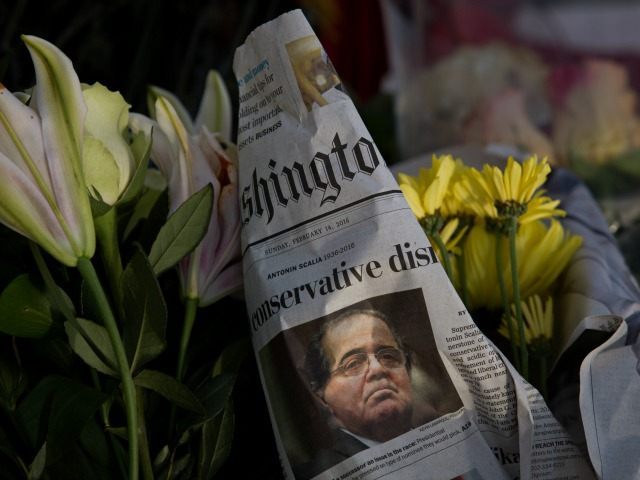WASHINGTON, DC—As the United States mourns the loss of a legal titan, Justice Antonin Scalia, many Americans are wondering what happens now at the Supreme Court, especially on issues that were expected to go 5-4.
The late Justice William Brennan (one of the Court’s most liberal members, one for whom Justice Scalia often expressed fondness) would famously ask his law clerks each year what the most important rule was at the Supreme Court. Then he would answer his own question by saying, “The Rule of Five: You can do anything around here with five votes.”
That’s part of one problem facing the nation right now, because without conservatives’ beloved “Nino,” as his friends called him, those conservatives cannot reach five votes for a favorable decision on matters where the Court’s four liberal members are voting the other way.
But the Rule of Five is also the solution to this problem. Every year there are several cases with only eight justices considering the case, because one justice must recuse himself or herself, usually because it involves a company in which they hold stock, or because (for newer justices) they were somehow involved with the case before it reached the Supreme Court.
When that happens, if the vote is a tie, a very short order is handed down, saying, “The judgment is affirmed by an equally divided Court.” It leaves the lower court decision in place as the law wherever that inferior court has jurisdiction, and does not create any Supreme Court precedent nationwide, one way or the other.
That may happen with many of the contentious cases hanging in the balance right now. Religious liberty rights under Obamacare, restrictions on abortion, and free speech rights are only three of the major topics currently pending before the High Court, which many legal experts speculate could be tie votes.
But there are other options. The Court can get rid of any of these cases if for some reason Justice Scalia’s departure means that the remaining justices did not want the case. If so, the order will read, “The writ of certiorari is dismissed as having been improvidently granted.” That happens a time or two each year, as well.
Another option, though, could capture the imagination of conservatives and liberals alike. The Court could vacate (that is, set aside) the current submission of the case, keep the legal briefs on file, and order the case to be reargued once a ninth justice is confirmed.
It looks increasingly likely that Justice Scalia’s seat will not be filled until early 2017. At that time, the Court could announce that it is adding those cases to the upcoming argument docket.
There is ample historical precedent for this. When Justice Robert Jackson died suddenly in 1954, the Court reheard several cases once Justice John Harlan II was confirmed to that seat. Other sudden departures also resulted in cases being reheard.
Most decisions at the Court are 9-0 unanimous decisions. That could impact cases that some people guess were headed for a sharply divided decision. For example, it’s possible that the Supreme Court might decide against President Barack Obama’s executive amnesty for illegal aliens on the narrow ground that DAPA (the acronym of the federal regulation’s official name) was put into place without the formal rulemaking process that the Administrative Procedure Act requires for major regulations. (It’s also very possible that the case was heading to a 5-4 outcome.)
Moreover, among those that break along philosophical lines, sometimes Justice Anthony Kennedy votes with the liberal justices. None of those cases will have different outcomes with the passing of the longest-serving member on the Court, as there would still be five votes in favor of a liberal outcome, and now there will be only three dissenters, instead of four.
But for those cases that now hang in the balance by a single vote, the justices can do whatever they want. They may throw it out, they may end it in a tie that leaves the lower court’s decision in place, or they may punt until next year, when one side or the other will have the votes to create a binding national precedent. If the justices are equally divided on how to dispose of a particular case, that case will stay in limbo until a ninth justice breaks the tie.
This is yet one more reason that many Americans may conclude that the fate of the Republic hangs on what the voters decide on November 8. With current cases before the Court and historic matters heading toward the Court in the next few years, the outcomes of many of those momentous matters will be decided by who is appointed to the seat left empty by Justice Scalia.
Ken Klukowski is legal editor for Breitbart News. Follow him on Twitter @kenklukowski.

COMMENTS
Please let us know if you're having issues with commenting.